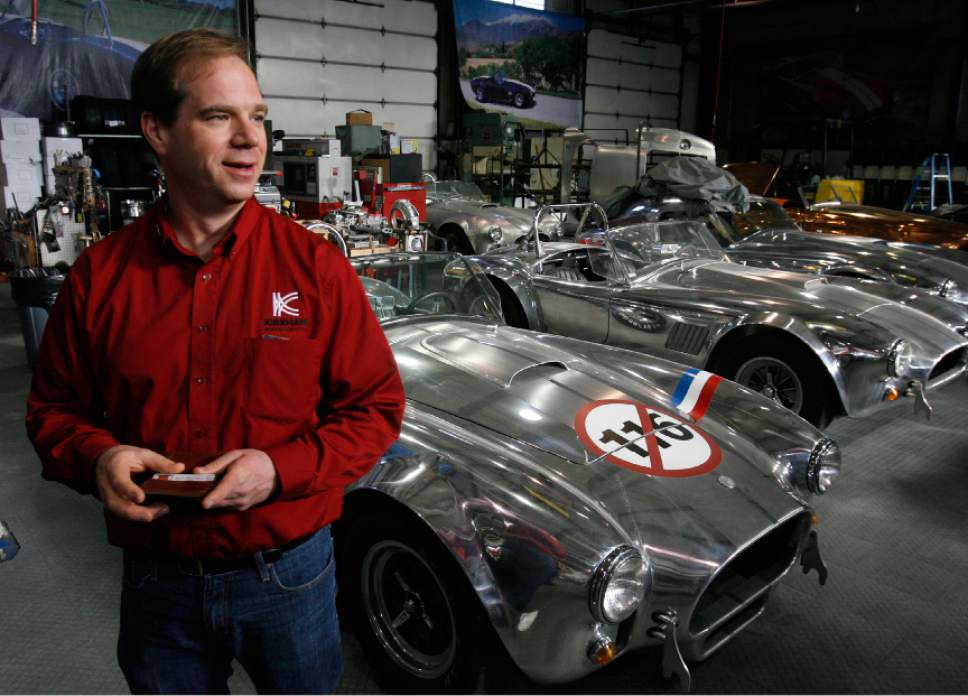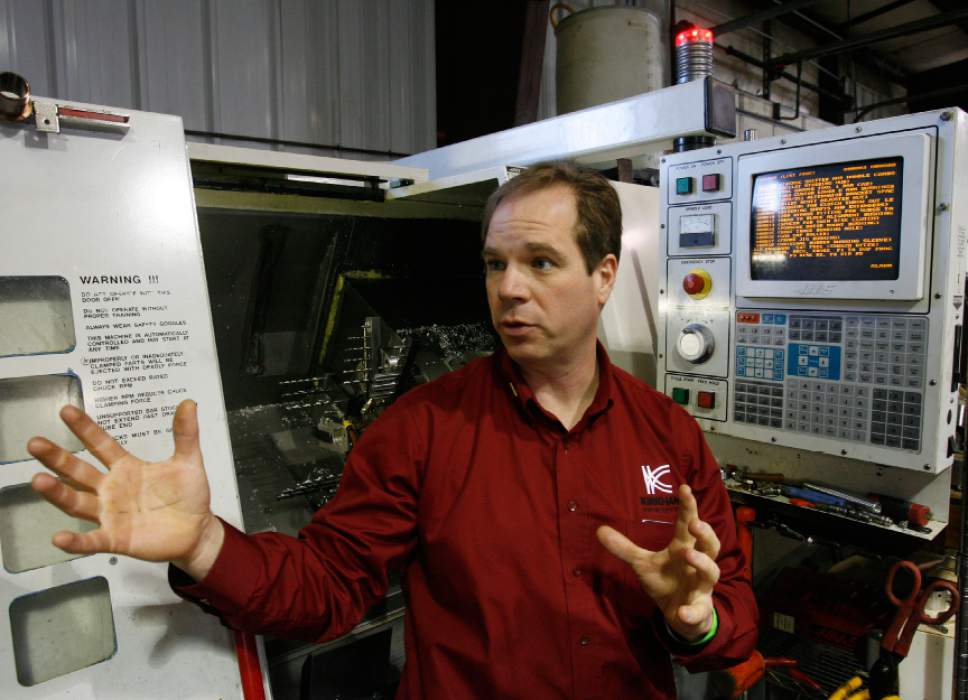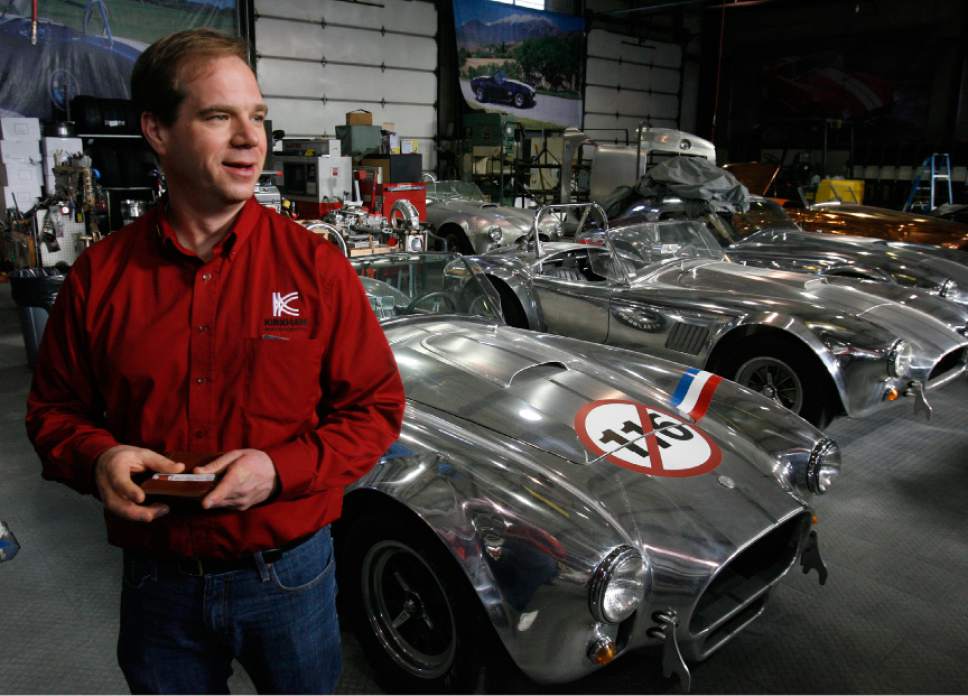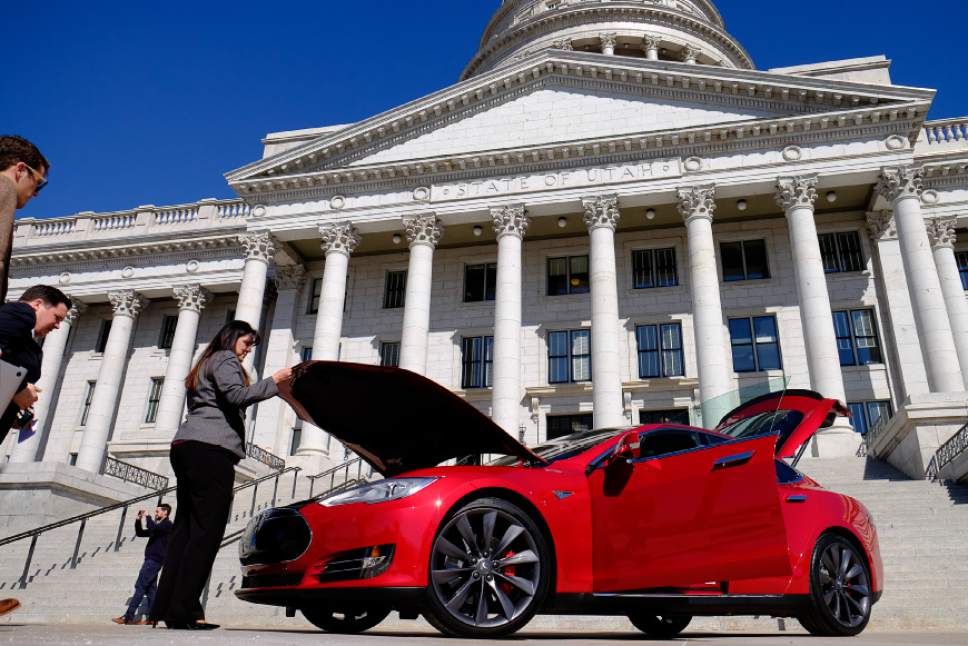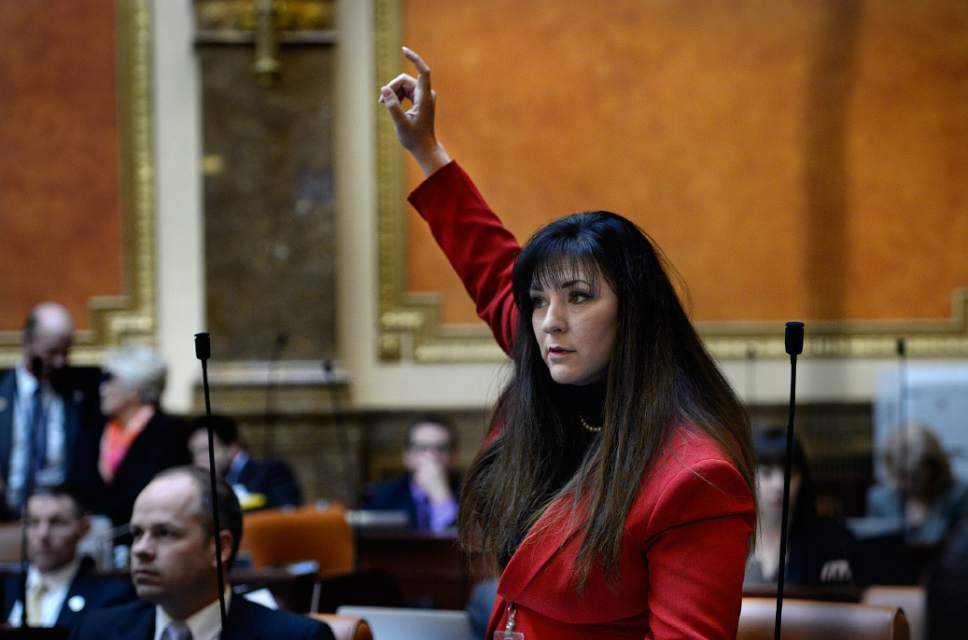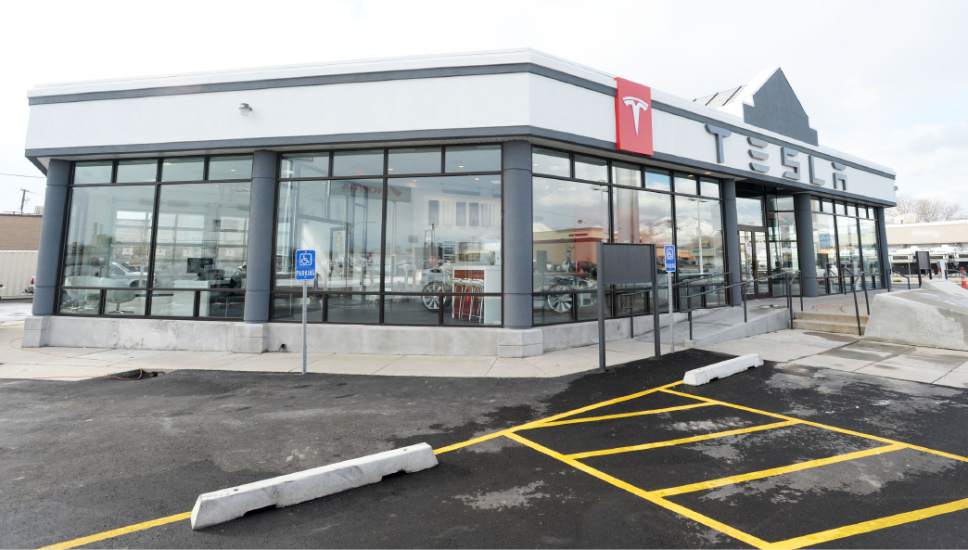This is an archived article that was published on sltrib.com in 2016, and information in the article may be outdated. It is provided only for personal research purposes and may not be reprinted.
A Utah County company that makes high-end three-wheel roadsters was banned from the Utah International Auto Expo last weekend, bringing to a head the boiling dispute over state laws requiring cars to be sold by franchised dealerships.
Provo-based Vanderhall Motor Works had applied for and was granted space for a booth at the Sandy auto showcase, but before the show opened, the booth was walled off so visitors couldn't see it because, the company was told, it sells its cars directly to consumers without going through dealerships.
A longstanding Utah law requires automakers to sell their cars through franchised dealers. The issue flared up last year when Tesla Motors tried to open a showroom in South Salt Lake and was denied a license. It has since been given permission to use the facility to sell used cars, which are not covered by the state franchise law.
"[The dealers] don't want anything that will encourage consumers to consider the idea of purchasing direct from a manufacturer. They want to hold onto the monopoly they've created," said Daniel Boyer, director of sales and marketing for Vanderhall Motors. "I don't know another industry where a manufacturer can't sell its own product, they can't market their own product. It's a travesty that I build a product in Utah and the people that build it cannot buy it."
The New Car Dealers of Utah, which organizes the auto show, shut down the Vanderhall booth and, without time to take down the booth, instead walled it off from view with what Boyer called a "Zion Curtain."
Craig Bickmore, president of the New Car Dealers of Utah, said the rules of the show were clear — that the manufacturers had to have relationships with dealers to be in the show — and when organizers learned that Vanderhall didn't have a dealer franchise, its representatives were refunded their money and asked to leave.
"I apologized. I said I don't blame you for being mad. But we're just following the rules here," he said. "That's just really what happened. Now we get beat over the head for obeying the rules."
Bickmore said the Utah franchise law is in place to help protect consumers and to increase competition. If there were no dealers, he said, the manufacturers could set the price and customers wouldn't be able to bargain with dealers for a better deal.
Far from protecting a monopoly, Bickmore said, the franchise model pits dealers against each other, giving customers an opportunity to find one that offers the best deal and best service on the vehicle consumers want.
"The franchise system does many things, but one of them is it moves the price of that product down because you have so many competitors in the market," he said. "So here's the flip side: The manufacturer-direct model, what happens? Where are the competitive forces?"
He said buying from the manufacturer lets the manufacturer set the price and not budge.
But Boyer says Vanderhall is a small company that each year builds around 50 of its specialty vehicles — a lightweight, sporty, three-wheel roadster with an aluminum chassis and carbon-fiber frame that sells for a flat $77,000 across the United States. For this operation, the dealership model doesn't make sense.
Rep. Kim Coleman, R-West Jordan, tried to change the law last year to help Tesla open its South Salt Lake outlet, but her bill ran into massive lobbying resistance from car dealers and failed to make it through the House. She has been working with representatives from the car dealers and manufacturers since then to try to find a compromise.
"This comes down to a 100-year-old system of franchising that doesn't want to budge. Until now, Tesla has been the poster child for this, but now we have a Utah face on it," she said. "To tell the consumer that you must deal with third-party middlemen and you cannot engage with a company directly is crazy in 2016."
The Federal Trade Commission has weighed in on the franchise laws in Utah and other states, saying these systems should be repealed because they do not benefit consumers. Auto dealers have attacked the FTC study as using faulty data and being biased to justify new federal regulations.
Vanderhall isn't the only Utah company affected by the law. David Kirkham, founder of Kirkham Motorsports, which builds custom aluminum versions of the Shelby Cobra, calls the law "un-American."
Because of the franchise law, Kirkham — who said he sold two of his sports cars to Larry Miller, who owned the state's largest chain of dealerships — has to ship his cars to customers without the engine and transmission installed. That way, he said, it's considered an "assemblage of motor vehicle parts" and not an automobile.
Late last year, Congress changed the law, so now, because he sells fewer than 300 cars a year, he can sell assembled cars, except in Utah, where that practice is prohibited.
"There's only one spot in this entire [planet] where I can't sell cars with transmissions, and that's in my home state," Kirkham said. "It's maddening to me that this law could have even gotten passed in our state. … This is pure, straight-up protectionism, pure and simple. It's crony capitalism at its worst."
Kirkham said it doesn't just affect his company: The law will keep out new innovators such as Google and Apple when they begin selling cars.
Coleman hopes, given some of the cases that have arisen in the past year and outcry from voters, that she will get the votes she needs to change the law.


